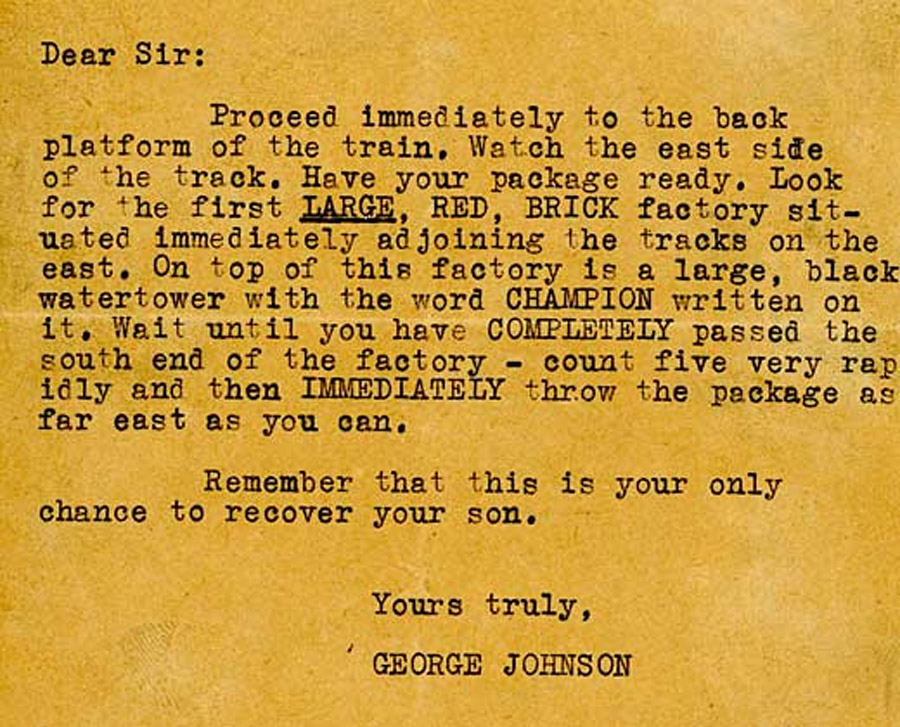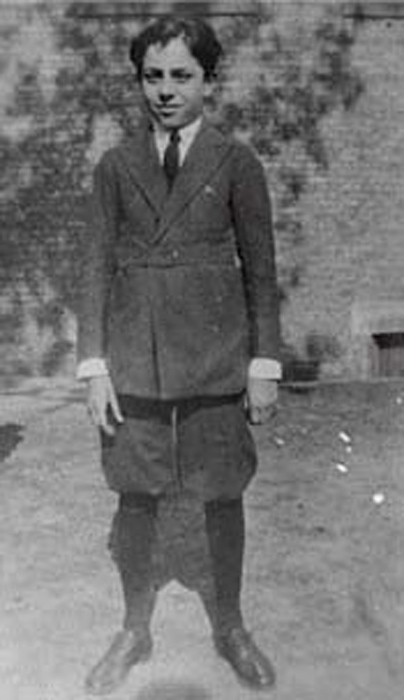In the 1920s, all the press and the public’s attention was pointed to an affluent area of Chicago, Illinois. Two young men who had everything going for them were now facing being sentenced to being hanged by the neck until dead or if they were lucky a lifetime behind bars.
What had driven these two privileged, brilliant men to commit such an evil crime? Furthermore, how did this supposedly “perfect crime” lead to this? How did it go so wrong?
Nathan “Babe” Leopold and Richard “Dickie” Loeb
Nathan Leopold grew up in a very wealthy household. His father paid for anything he wanted, and Babe never had to pay for anything. But it wasn’t just the family’s wealth that was special about Babe. He was a genius with an IQ of over 200, double the average score. His education was rapid, his intellect allowing him to skip a few grades and enter college at the University of Chicago at the age of 14.
He studied 15 different languages, spoke 5 of them, and became well known in the field of ornithology (the study of birds). Leopold gave lectures and taught classes at nearby elementary and prep schools on his chosen topic, and was generally seen as a brilliant, precocious youth.
Two of his papers were published in the leading journal of ornithology in the United States, The Auk. At 19, “Babe” even presented a report about a rare songbird at the American Ornithological Union’s annual meeting. He seemed destined for more extraordinary contributions to the academic world.
Leopold however was limited in other ways. He never felt the need for others, friends, or any of his peers to in his life. His intelligence made him consider everyone inferior to himself. Everyone except Richard Loeb.
Richard Loeb grew up in the lap of luxury. His father was a lawyer and then vice president of Sears, Robuck &Co, and a multimillionaire. Loeb was given a large allowance each month and the ability to get more money whenever he wanted, no questions asked. He was also incredibly intelligent.
With an IQ estimated at 160, he also entered college at the University of Chicago at 14. Loeb transferred and graduated from the University of Michigan at 17, the youngest person in the history of the University of Michigan to earn a degree.
Partners in Crime
The two boys met at the University of Chicago at the ages of 14 and 15. Being the only young students at the university, they spent a lot of time together, and the two became fast friends. Their friendship also apparently grew into a sexual relationship of sorts, and they developed a close bond.
Leopold was certainly either gay or bisexual, and he made his attraction to the younger Loeb clear. Loeb acquiesced, and apparently leveraged sex as a way to convince Leopold to do anything he wanted.
- Who Did It? The Murder of Martha Moxley and the Kennedy Connection
- Finland’s Unsolved Lake Bodom Murders
All this took place in a period when homosexuality was frowned upon socially and legally, and the two boys would date women and hide the truth. When questioned later both men would tell conflicting stories and exaggerate about their relationship.

Leopold was an avid reader of the philosopher Friedrich Nietzsche. He was obsessed with the concept of the Übermensch from Nietzsche’s philosophical fiction book Thus Spoke Zarathustra (Also Sprach Zarathustra).
Übermenschen were “supermen” or the ideal perfect future human. These supermen had power or skills nobody else had. Supermen had the ability to influence and affect the lives of others and control their own fates, and were set apart from most people. It is understandable why Leopold was attracted to this idea, although he clearly missed Nietzsche’s critical philosophical point in the process.
Supermen
Leopold introduced the concept of the Übermensch to Loeb and floated the idea that they, with their genius minds, were two examples of these supermen. As per his interpretation, this meant they were morally free from the rules and laws that others lived under and could do whatever they wanted.
This led to the pair engaging in petty crimes like cheating when playing cards, as well as minor arson, theft, and breaking and entering, they even broke into Loeb’s fraternity house to rob his fraternity brothers. They were often caught in the act. However, nobody took their actions seriously, and the boys were never punished, which may well have furthered their conviction of superiority.
Loeb was excited by the destruction caused by committing crimes with Leopold. On the other hand, Leopold was subservient and was more interested in having sex with his Dickie. They came to a strange agreement. If Leopold became his partner in crime, Loeb would let Leopold have sex with him.
With the belief in being supermen and no punishment for their petty crimes, the two soon felt secure in their position as supermen. Taking things a step further and in part as a demonstration of their superior intellect, they decided to commit the “perfect crime.”
Planning and Preparation
Leopold and Loeb spent seven months planning their perfect crime, which could be nothing less than a murder. The two planned meticulously, picking a day to commit their crime as well as the dump site for a future victim. The boys decided to kidnap a child and kill them. Leopold suggested they also send the victim’s family a ransom note even if the victim was dead.
The men booked a hotel room and a car under false names on May 20th, 1923, and bought supplies for their attack. They bought rope, a chisel, and hydrochloric acid and went to Leopold’s house for more items such as a car dust cover, a spotlight, and rubber boots. Tomorrow, they believed, they would commit the perfect crime.
The next day the boys picked up the rental car, covered its license plate, and drove to their hunting ground: The Harvard School. After some scouting, they selected 14-year-old Bobby Franks, someone Loeb knew. Bobby lived across the street from Loeb and often played tennis at the court at the Loeb house. Bobby was also Loeb’s second cousin.
After offering Bobby a ride home, the child slid into the passenger seat, and Leopold drove off. Loeb, in the back seat where he sat, put his hand over Bobby’s mouth and struck him multiple times on the head with a chisel. Bobby was still alive after the attack, causing Loeb to pull the boy into the backseat of the car and suffocate him.
- The Pimlico Poisoning Mystery: Adelaide Bartlett’s Perfect Crime?
- The Green Bicycle Case: Did Roland Light Do It?
When it was dark, the boys used the dust cover as a sling to carry the body out of the car to be disposed of in a culvert that Leopold had found while bird watching. The killers stripped Bobby, and in an attempt to disguise any recognizable features, they poured the acid on his face and penis (Bobby was Jewish and was circumcised). After stashing the body, a ransom note was sent to Bobby’s family.
Imperfect After All
Almost immediately the plan started to go awry. Bobby’s body was found the very next day, curtailing the ransom note plan. Furthermore, a very distinctive pair of glasses was also found near the body.

Only three pairs of those specific glasses were sold in Chicago, and one of the pairs had been sold to Nathan Leopold. The pair had never expected to be considered as suspects, and after a few rounds of questioning, both confessed to their crime.
The state sought the death penalty for the two men, even though they would be the youngest people hanged (the method of execution at the time) in the state. The lawyer for the boys pled guilty, which resulted in a trial with a judge and no jury.
Their lawyer was against the death penalty and instead argued for a life sentence. Psychologists observed the boys to speak about their mental condition. They determined that Loeb “appeared to have been a congenital criminal.”
Leopold was said to have a paranoid personality and saw his friendship with Loeb as a “slave/master” relationship. He would do whatever Loeb asked of him. Both boys did not have social or emotional development as typical children do. They skipped grades and were very young when they went to college.
While they were smart, they only had the emotional maturity of young boys. After a lengthy trial, the judge sentenced them each to a life sentence for murder and 99 years for kidnapping and the ransom scheme.
A Life Wasted
After being kept apart for a few years in the same prison, they were able to join each other and together founded a school for the inmates. However their time together was abruptly ended when, on January 28 1936, Loeb was stabbed by another inmate with a straight razor and died.
After Loeb died, Leopold learned and did more, apparently freed from his fixation. He went on to learn another 12 languages, including braille, to help a blind prisoner and volunteered in the malaria project. In the project, subjects were purposely given malaria, and scientists used them to work towards a cure for the deadly disease
Leopold was paroled in 1958 after 33 years in prison. He moved to Puerto Rico to escape the press, published a book about native birds, and earned a masters degree. He even married a doctor’s widow in 1961. It seemed like he was reformed and turned his life around. In 1971 when he was 66 years old, he died of a heart attack.
Both Leopold and Loeb could have made significant contributions to the world with their knowledge. Instead, these “supermen” learned they weren’t as super as they thought, and the perfection they aspired to was tested and found wanting in the most vicious and mindless way.
Top Image: Leopold and Loeb. Source: Bundesarchiv / CC-BY-SA 3.0.
By Lauren Dillon
